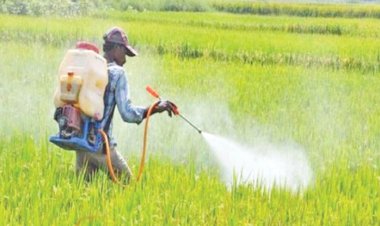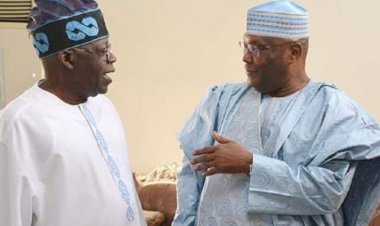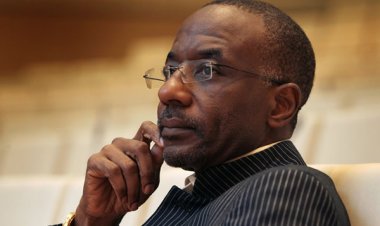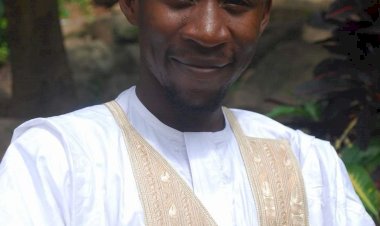Former IAAF president Lamine Diack sentenced to 2 years in prison
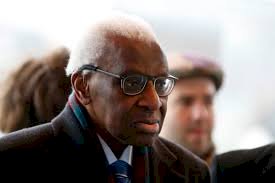
PARIS — Former track federation president Lamine Diack was sentenced Wednesday to two years in prison for his role in a scheme that allowed Russian athletes who paid hush money to keep competing when they should have been suspended for doping.
The guilty verdict in a Paris court represented a spectacular fall from grace for the 87-year-old Diack, who was the powerful head of the IAAF from 1999 to 2015. The court also sentenced Diack to another two years of suspended jail time and fined him 500,000 euros ($590,000).
His lawyers said they will appeal, which will keep Diack out of jail for now. Diack did not comment as he walked out of court.
One of Diack’s lawyers, Simon Ndiaye, called the verdict “unjust and inhuman” and said the court made his client a “scapegoat.”
Diack was found guilty of multiple corruption charges and of breach of trust but acquitted of a money laundering charge.
Among those in court, and thrilled by the verdict, was French marathon runner Christelle Daunay. She competed against one of the Russian athletes, runner Liliya Shobukhova, who later testified to investigators about illicit payments to hush up doping. Beaten by Shobukhova at the 2011 Chicago Marathon, Daunay was a civil party to the case.
Speaking after the court awarded her damages totaling 45,000 euros ($53,000), Daunay described the verdict as a victory for all athletes who were robbed of prizes and results by having to race against competitors who should have sanctioned but instead paid to benefit from the doping cover-up.
“Behind my mask, you can’t see it, but I’m smiling,” she said. “I’m pleased, too, for all the athletes. We have to keep up the fight against doping.”
At Diack’s trial in June, prosecutors requested a four-year jail term and a fine of 500,000 euros ($590,000).
Diack, wearing a white robe, sat impassive in front of the chief judge as she read out the guilty verdict and sentence. The judge, Rose-Marie Hunault, detailed his role in the payoff scheme, dubbed “full protection,” that squeezed Russian athletes suspected of doping of about 3.2 million euros ($3.74 million) in hush money.
“The money was paid in exchange for a program of ‘full protection,”’ she said, adding the scheme allowed athletes who should have been suspended “purely and simply to escape sanctions.”
The court also handed guilty verdicts to five other people, including Diack’s son, Papa Massata Diack, who worked as an IAAF marketing consultant. The judge said $15 million was funneled to the younger Diack’s companies, including commissions and money creamed off contracts and the sale of TV rights and other transactions while his father was in charge at the IAAF.
The younger Diack lives in Senegal, which has refused to extradite him. He was not in court for the verdict and did not attend the six-day hearing in June. The court sentenced him in his absence to five years in prison and a fine of 1 million euros ($1.17 million).
Another of those found guilty on corruption charges was former IAAF treasurer Valentin Balakhnichev, also tried in his absence and not in court Wednesday. The court handed the Russian a three-year jail term and said money would be confiscated from his account in Monaco, where the IAAF is based.
Balakhnichev vowed to appeal to “the highest instances.”
“I have been deprived of the legal right to defend myself. They said that I was not cooperating with the investigation and I categorically disagree with that,” he said.
Gabriel Dolle, a doctor who oversaw drug testing at the IAAF, was handed a two-year suspended jail term and fined 140,000 euros ($163,000) for taking money to slow down doping sanctions.
Also found guilty were lawyer Habib Cisse, who served as Diack’s legal counsel and was said by the judge to have played an “essential role” in corruption under Diack, and Russian coach Alexei Melnikov, who was tried and sentenced in his absence.








